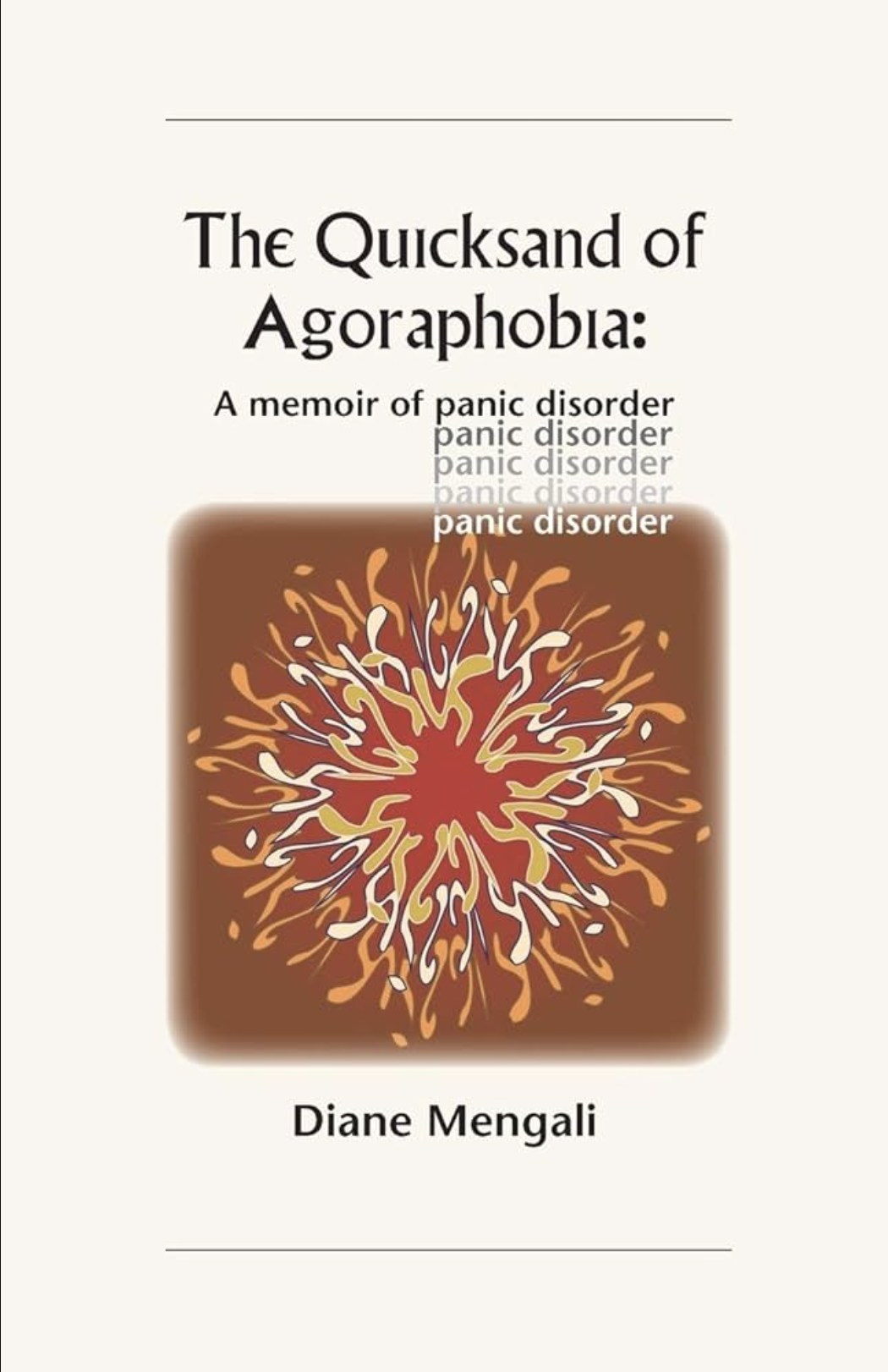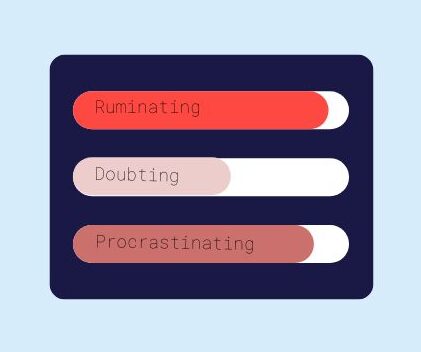
Quicksand of Agoraphobia, by Diane Mengali
We had a wonderful talk with Diane Mengali, author of The Quicksand of Agoraphobia, a few months ago. She was very warm and open in sharing her experience, for which we are very grateful. We have revised the interview into four parts. This is the fourth and final post. (Edited for length)
– What would your advice be to people who struggle with difficult worrying thoughts and paralyzing anxiety?
- If you think you have an anxiety disorder, run, don’t walk, to a therapist who specializes in anxiety disorders. The earlier the treatment, the better the results. If necessary, keep interviewing therapists until you find one who clicks with you. Don’t beat up on yourself if you feel helpless or flawed. Congratulate yourself for your bravery in taking steps to improve your life.
- Once you start treatment with your chosen therapist, TRUST yourself and the TREATMENT.
- Learn to ask for help in other fear-producing situations.
- Don’t compare yourself to other people who can do what you can’t. You never know what others may be going through.
- When I started practicing behavior modification, I discovered there were plateaus. I’d be making great progress, then I’d plateau out and feel stuck and discouraged. Whenever I felt stuck, I’d think about how far I had come, not about how far I had to go. Sometimes, I’d take a break from practice. It also helped to stop and do something enjoyable. I swam regularly which helped me relax and I always had an enjoyable book waiting to distract me.
- I learned that at first, progress came in small steps, but the more I practiced, I could take bigger steps. I had to think that if I could do something I feared for 5 minutes, I surely could do it for 8 or 10. Sometimes, I regressed. But if I stuck to it, I’d get past being stuck and be able to move to the next level.
- It helped me to congratulate myself every time I practiced. It also helped to connect my behavior to my thoughts. What kind of messages am I giving myself?
- When I had my first panic attack, I believed that the panic came “out of the blue.” I’ve heard other people describe panic attacks in the same manner. Once I started therapy and worked on family of origin problems, I realized that I had been primed early on for the panic attack by environment and possible genetic brain-wiring.
- TRUST in yourself and your THERAPIST. Your therapist is your guide. It might be helpful to see yourself as a frightened, small child and to see the therapist as a kind parent who is leading you by the hand to a better life. AND, DON’T GIVE UP. Believe that there are people out there
who are kind, understanding and willing to help. - Lastly, STAY IN THE MOMENT AND REMEMBER: WORRYING DOES NOT SOLVE PROBLEMS.
For the previous posts, see below:
To read more of her story, you can visit her website here, or take a look on Amazon here.







